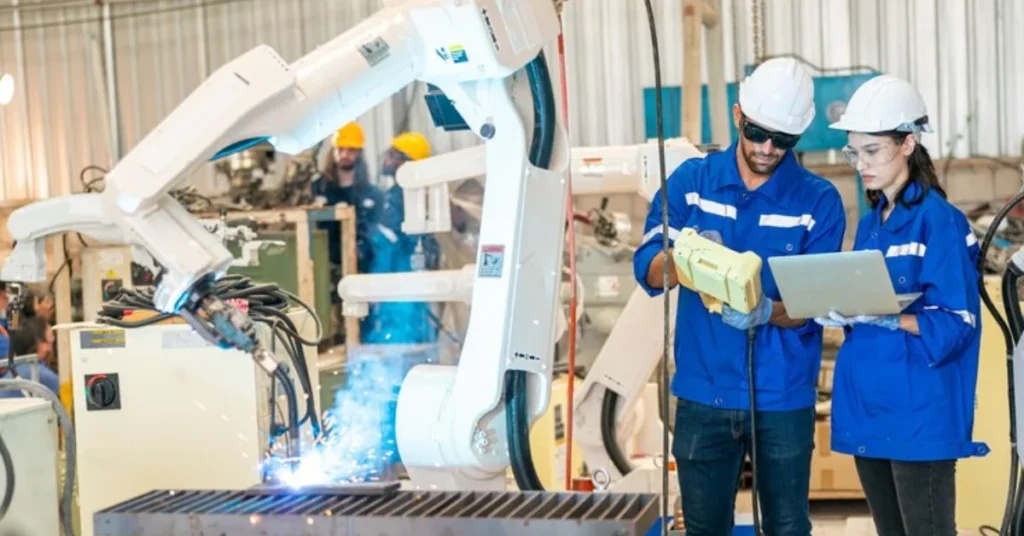Table of Contents
- Introduction to Precision Manufacturing
- Historical Context and Evolution
- Core Techniques and Technologies
- Application Across Key Industries
- The Challenges and Solutions
- Future Trends in Precision Manufacturing
- Real-Life Case Studies and Success Stories
- Conclusion and Final Insights
Precision manufacturing drives innovation in modern industries by delivering high-quality, accurate components essential for advanced technologies. It enhances efficiency, reduces waste, and ensures consistency in production. From aerospace to healthcare, precision processes enable complex designs and improve reliability, supporting the development of cutting-edge solutions and maintaining global competitiveness.
Introduction to Precision Manufacturing
Precision manufacturing has emerged as an indispensable component in the ever-evolving landscape of modern industries. It is a hallmark for ensuring products meet and exceed stringent quality standards that today’s consumers and industries demand. Central to this process is the application of tool and die services. This technical expertise allows businesses to achieve the remarkable accuracy and detail necessary for modern competitive markets. High-precision manufacturing processes use advanced techniques to produce intricate components that were once complex and resource-intensive.
The role of precision manufacturing goes beyond mere production; it plays a significant part in enhancing quality and efficiency. This symbiosis of technology and craftsmanship has revolutionized how industries produce everything from tiny electronic components to large aerospace parts. Its ability to address and solve complex manufacturing challenges places it at the forefront of industrial capabilities.
Historical Context and Evolution
Looking back, the Industrial Revolution is where precision manufacturing first emerged. It began as a fundamental requirement for the growing need for interchangeable parts that had to be standardized to facilitate efficient mass production. This historical necessity laid the groundwork for what has blossomed into a technologically advanced discipline.
Over the decades, technological evolution has been a constant companion to precision manufacturing. The advent of CNC machines revolutionized the industry by allowing for automated control of machining tools. This breakthrough was complemented later by additive manufacturing techniques, which brought a new dimension to production capabilities. As technology advanced, so did the accuracy and finesse with which components could be manufactured, setting the stage for today’s sophisticated methods.
Core Techniques and Technologies
Several key techniques and technologies have collectively redefined modern production at the core of precision manufacturing. Machining, including drilling, turning, and milling, forms the backbone of traditional manufacturing. Companies like Brightstone Engineering specialize in CNC machining of automotive components such as car wheel spacers, gearbox adapters, and billet diff covers, demonstrating how these traditional techniques still drive modern innovation. Laser cutting offers the precision needed for intricate designs, while additive manufacturing, commonly known as 3D printing, brings versatility through layer-by-layer construction of complex shapes.
The integration of CAD/CAM software further enhances these techniques. These digital tools facilitate meticulous design and subsequent manufacturing, reducing the margin for human error and dramatically improving the precision of the end products. Combining these technologies leads to reduced material waste, streamlined operations, and products of superior quality, a trifecta that resonates well across industries seeking cost-efficiency and excellence.
Application Across Key Industries
The impact of precision manufacturing is profound across various key industries. Aerospace requires components that meet strict safety and performance criteria. Precision manufacturing contributes significantly to this field by ensuring every part aligns with rigorous standards, which is vital given the safety implications.
In the healthcare sector, precision manufacturing is revolutionizing medical devices. Enabling the fabrication of complex medical instruments and prosthetics with unparalleled precision enhances patient care and outcomes. Meanwhile, the automotive industry benefits from increased efficiency, with precision manufacturing paving the way for better fuel efficiency and safety features. With its ever-decreasing component sizes, the electronics industry relies heavily on these manufacturing techniques to build intricate circuits and devices that power our modern world.
The Challenges and Solutions
Despite its advantages, precision manufacturing is not free from challenges. High costs associated with state-of-the-art equipment and the skill gap due to the specialized nature of the work are notable hurdles for many companies. Yet, the industry is adaptive, and several solutions are emerging to counter these obstacles.
Automation is a key solution, reducing labor costs while increasing output and consistency. Additionally, programs aimed at skill development are helping bridge the gap, equipping the workforce with the necessary expertise to operate complex machinery. Global supply chains also demand more resilience, leading manufacturers to employ localized production strategies aided by advanced collaborative technologies.
Future Trends in Precision Manufacturing
The landscape of precision manufacturing’s is on the cusp of significant transformation driven by emerging technology trends. Artificial Intelligence (AI) and robotics promise to refine and perfect manufacturing processes, introducing more innovative ways to optimize production lines and reduce waste.
There’s an increasing shift towards sustainability as industries strive to adopt eco-friendly practices without compromising quality. Notably, the rise of smart factories epitomizes the next step in precision manufacturing’s. These factories are characterized by interconnected systems that autonomously adjust operations in real-time, enhancing efficiency and supporting sustainable practices.
Conclusion and Final Insights
Precision manufacturing’s is a crucial aspect of modern industrial processes, driving innovation, improving product quality, and maintaining competitiveness in a rapidly changing market. As technological advancements and consumer demands evolve, its influence is expected to grow even more. Businesses must embrace precision manufacturing’s techniques to thrive, as their integration improves output and aligns with sustainability and efficiency objectives, making it indispensable in today’s manufacturing’s processes.







